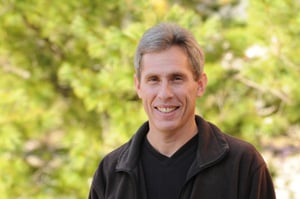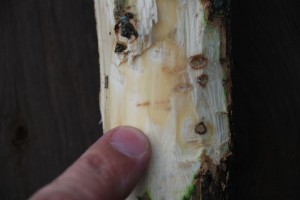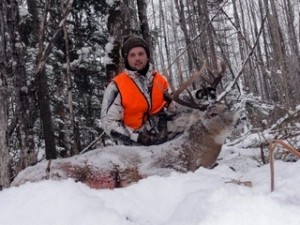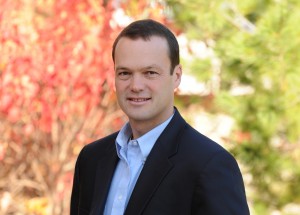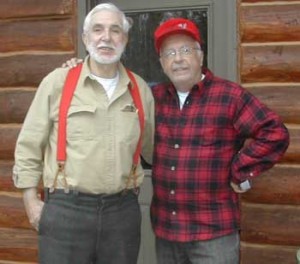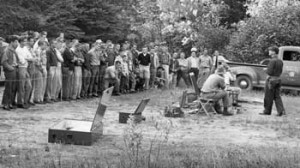January 11, 2011— This afternoon, Keith Creagh is running a minute or two late. “Just catching up with the head of the Michigan Asparagus Advisory Board,” he says, by way of explanation.
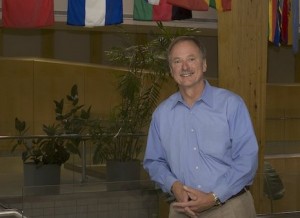
Creagh (pronounced “kray”) is catching up with many people these days. The 1974 forestry graduate was tapped by Michigan’s then-governor-elect Rick Snyder to lead the newly named state Department of Agriculture and Rural Development, and he’s been busy laying the groundwork for what he hopes will be at least four years of collegial, effective policymaking.
The words “collegial” and “effective” do not immediately spring to mind in association with Michigan state politics, which has suffered from much the same partisan acrimony as the nation as a whole. Nevertheless, Creagh is unfazed.
“I am familiar with the waterfront,” he notes.
Indeed. Before leaving government for the private sector in 2007, Creagh spent 33 years with the state Department of Agriculture, including 12 years as chief deputy director. He served under eight directors and three governors of both political stripes: James Blanchard, John Engler, and Jennifer Granholm. And he is absolutely convinced that progress is not merely possible but practically inevitable if you follow three simple rules.
“First, get good information to good people: that’s how you get good decisions,” he says. “Second, do the right thing, and don’t worry about who gets credit. And third, make sure your policy is not exclusionary.”
In other words, welcome all the stakeholders to the table. “If I put a farmer, a retailer, a food processor, a food bank person and an environmental advocate in the room, at the end of the day, if they are all aligned, how can you not get good policy?”
The same is true, he says, for Republicans and Democrats. “There are great politicians on both sides of the aisle,” says Creagh. “You just need to find and leverage those relationships to develop policy.”
The new administration will reflect that collaborative modus operandi, he says. “There’s going to be some heavy lifting,” says Creagh. “Governor Rick Snyder is fostering a different operational format. He’s clustering thematic areas, so there’s strategic alignment.”
The Snyder administration is breaking apart the Department of Natural Resources and Environment to form the Departments of Environmental Quality (DEQ) and Natural Resources (DNR). The new DNR and DEQ are grouped with Agriculture in a new Quality of Life cluster. Creagh’s former boss Dan Wyant, who headed the agriculture department for several years under Engler and Granholm, leads the DEQ and the Quality of Life cluster. Another former colleague, Rodney Stokes, is now the DNR director. “When I was given an opportunity to work with these two individuals, I couldn’t say no.” Creagh said.
“We all realize that natural resources, the environment and economic growth will benefit from a comprehensive and integrated policy approach. Governor Snyder is asking us to develop policies that are aligned with this vision and concept.”
Creagh, a member of the advisory board for the School of Forest Resources and Environmental Science, has close ties with Michigan Tech. “Fundamentally, it all started at Tech,” he says. “Everything in my life has been built upon that.”
The first in his family to go to college, he attended the University with Peg Gale, now dean of the School. “And [Michigan Tech president] Glenn Mroz was a classmate,” he says.
Former dean Gene Hesterberg got him his first job, “at a time when there were a lot of foresters, and competition was pretty keen.”
“He went out of his way to make a difference,” Creagh recalls. “When Glenn was dean, he did that, and Peg does too. They focus on what’s right for their students to provide a foundation for their future success.”
He hopes that over the next few years he can play some part in the success of the state. “I have four kids, and two of them are out of state,” says Creagh. “I want to give that generation an opportunity to live and work in Michigan just like I did.”
Michigan Technological University (mtu.edu) is a leading public research university developing new technologies and preparing students to create the future for a prosperous and sustainable world. Michigan Tech offers more than 130 undergraduate and graduate degree programs in engineering; forest resources; computing; technology; business; economics; natural, physical and environmental sciences; arts; humanities; and social sciences
